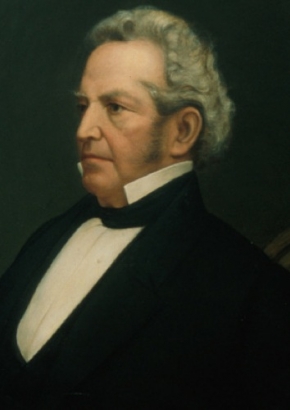You are here
Circuit Court Opinions:
Associate Justice James Moore Wayne, Grand Jury Charge (1859)

Grand Jury Charge, 30 F. Cas. 1026 (C.C.S.D. Ga. 1859) (No. 18,269a) [Sixth Circuit]
Justice James Wayne was a native of Savannah, Georgia, and a slaveholder. He was instrumental in convincing Chief Justice Roger Taney to decide the Dred Scott case broadly in the hope of resolving the question of slavery in the territories once and for all. He then concurred with Taney’s opinion holding that African Americans were not, and could never become, citizens of the United States. Despite his background, Wayne was a unionist who refused to resign from the Court at the outbreak of the Civil War, much to the chagrin of his fellow Georgians. He was also a firm opponent of the African slave trade, which Congress had banned in 1808. It was not uncommon for southerners who supported slavery to view the international slave trade with disfavor. Some believed it to be a violation of human rights, while others wished to avoid competition with the internal slave trade.
In 1859, Wayne charged a grand jury in Savannah regarding the illegality of the African slave trade. The impetus for his charge was the activity of the ship Wanderer, originally built as a racing yacht and then converted into a slave ship. The crew of the Wanderer landed more than 400 Africans on Jekyll Island, Georgia, in November 1858, scattering them across the state to be sold into slavery. Many of the captives had died during the voyage as a result of the brutal conditions imposed upon them. Federal officials soon learned of the landing, upon which they seized the ship and arrested its crew.
Wayne’s charge was long and detailed, recapitulating the entire history of federal legislation regarding the African slave trade. Conscious of his audience, the justice emphasized that southern leaders had been instrumental in the passage of these laws. “[T]he distinguished men of both sections took an active part, none of them more decisively than southern statesmen, in every act that has been passed, including the last,” he said. “There has never been any manifestation of popular or sectional discontent against them on account of their opinions concerning the African slave trade, or their legislation to repress it.” Wayne also expressed his own opposition to the trade, calling it “inhuman.”
The grand jury indicted three members of the crew for piracy, punishable by death, as provided for by an 1820 statute. After a trial presided over by Wayne and U.S. District Judge John C. Nicoll, all the defendants were acquitted. Other prosecutions concerning the Wanderer were likewise unsuccessful.
